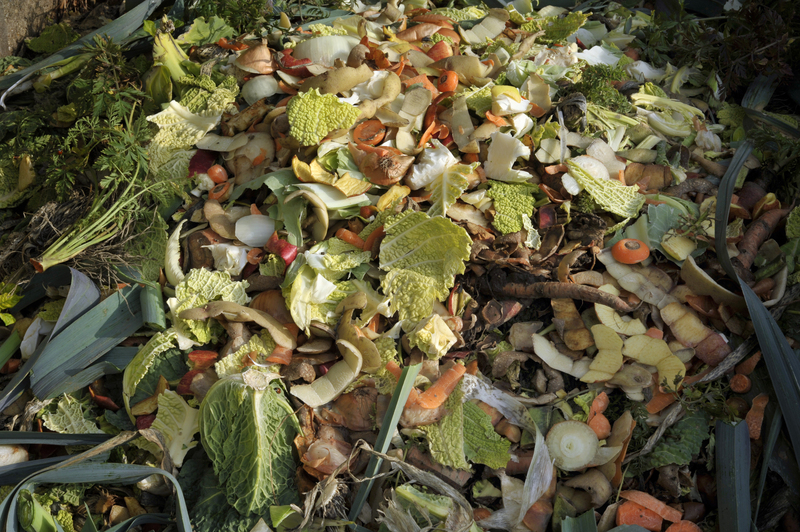The Unseen Environmental Toll of Poor Waste Practices
In today's world, as urbanization and industrialization accelerate, the management of waste becomes critical to safeguarding our environment. While advancements in waste management are palpable, poor waste practices continue to exert an unseen environmental toll. This article delves into these impacts, examining how improper waste management can harm our planet and what measures can be implemented to mitigate these effects.
Understanding Poor Waste Practices
Waste practices refer to the collection, transportation, processing, disposal, and recycling of waste materials. Poor waste practices often involve inadequate or ineffective waste management systems, which can result from a lack of resources, improper planning, or insufficient regulatory frameworks. These practices are particularly detrimental when hazardous wastes are involved, posing considerable risks to both the environment and human health.
The Types of Waste Affected
Poor waste management can apply to various waste types, including:
- Municipal solid waste: Everyday waste materials from homes, schools, and businesses.
- Industrial waste: By-products and residues from industrial activities.
- Hazardous waste: Toxic, dangerous, or otherwise harmful materials that require special handling.
- Electronic waste (e-waste): Discarded electronic devices with hazardous substances like lead and mercury.

The Environmental Toll of Ineffective Waste Management
The repercussions of poor waste practices are vast and varied. The most significant environmental impacts include:
Soil Contamination
Improper disposal of waste can lead to soil contamination as hazardous chemicals leach into the ground. This contamination can devastate local ecosystems, disrupting plant and animal life. Moreover, soil contamination poses significant risks to human populations through the food chain, as toxic substances accumulate in agricultural products.
Water Pollution
Water pollution is another consequence of poor waste management. When waste is dumped into water bodies, it can lead to the depletion of oxygen, harming aquatic life. Leachate, a liquid that comes from landfills, can also infiltrate groundwater supplies, making it unsafe for consumption and agricultural use.
Air Pollution
Poorly managed waste can lead to air pollution, particularly when waste is incinerated without adequate controls. This process releases harmful emissions, such as dioxins and furans, into the atmosphere, contributing to poor air quality and respiratory problems in humans and animals.
Climate Change
The decomposition of organic waste in landfills produces methane, a potent greenhouse gas that significantly contributes to climate change. In fact, methane is over 25 times more effective at trapping heat in the atmosphere than carbon dioxide, making effective waste management crucial in combating global warming.

Tackling Poor Waste Practices: Effective Strategies
To mitigate the environmental toll of poor waste practices, several strategies can be implemented:
Implementing Robust Waste Management Systems
Governments and municipalities should develop and enforce comprehensive waste management systems that include regular waste audits, improved waste collection services, and recycling programs. These systems should be tailored to the specific waste needs of the area, ensuring efficiency and effectiveness.
Public Education and Awareness
Promoting public education and awareness about the importance of proper waste disposal is essential. Initiatives could include workshops, campaigns, and school programs that educate citizens about recycling, reducing waste, and the impacts of improper waste disposal.
Encouraging Recycling and Upcycling
Recycling reduces the demand for creating new products and minimizes waste sent to landfills. Upcycling, or creatively reusing waste products, can also be fostered to convert waste materials into valuable goods, further reducing environmental impact.
Adopting Innovations in Waste Processing
Investing in advanced technologies for waste processing can dramatically reduce waste's environmental toll. For instance, waste-to-energy technologies can convert waste into renewable energy, reducing reliance on fossil fuels and diminishing waste volume.
Conclusion: A Call to Action
The hidden environmental impacts of poor waste practices are significant but often overlooked. Addressing these challenges requires collective action from governments, industries, communities, and individuals. By implementing effective waste management strategies, investing in technological innovations, and spreading awareness about waste impacts, we can significantly reduce the environmental toll of waste and secure a sustainable future for generations to come.
Through proactive measures and enhanced awareness, we can transform waste from an environmental burden into a resource, creating a cleaner, healthier world for all.